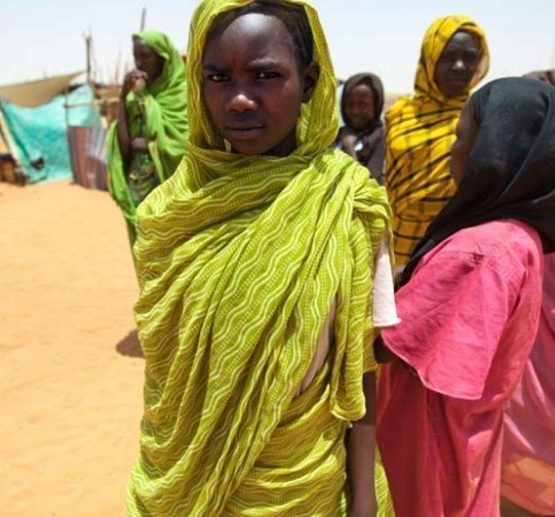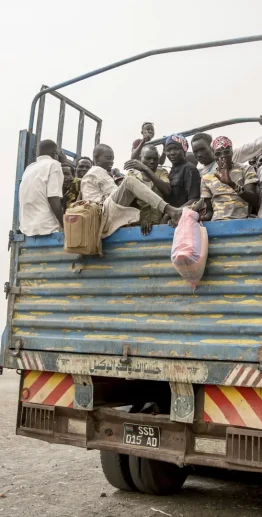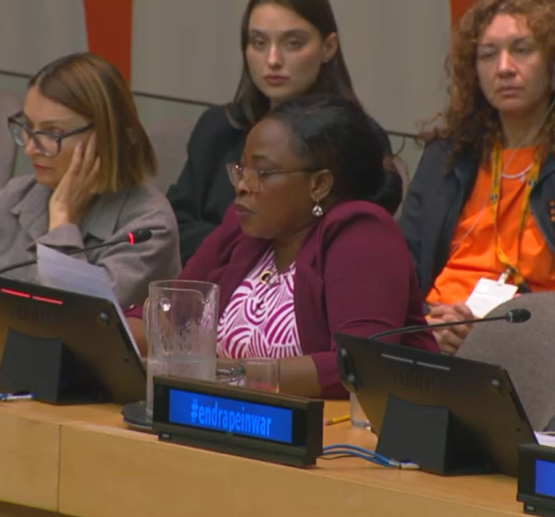Stars for Darfur: A call from Rome that shifted the conversation in DC
A story of an inseparable bond that brought the Italian community close to Darfur.
In today’s polarized environment, I feel compelled to share this beautiful story.
In 2011, media coverage of the Darfur genocide began to rapidly decline along with support from the international community. As a survivor of the Darfur genocide and with people still suffering on the ground, I felt betrayed. Although overwhelmed, I worked hard to not get discouraged and to find ways to ensure maintaining attention on Darfur. At that time, the Darfur Women Action Group was just a logo and a registration certificate, a Board consisting of three members, two volunteer staff members comprised of only me and an intern, who was a junior at American University. We needed and decided to do something to rescue the waning Darfur anti-genocide movement. This movement, aimed at mobilizing citizens against the genocide in Darfur, had begun in the United States and had extended around the globe. We needed to get DWAG to work and our initial goal was to give women survivors a voice. Secondly, we focused on sustaining the engagement of committed individuals. We planned to do both via an annual symposium where the two groups meet annually. To these ends, we decided to do three things: (1) maintain close contact with survivors on the ground and document the atrocities they had experienced, (2) launch a strong advocacy program led by survivors, and (3) organize an annual multi-day symposium on women and genocide in the 21st century. Our intent was to avoid replication of what was already being done and to focus on addressing the weakness of the existing movement. Then we identified two important gaps: violence against women within the context of genocide and the lack of empowerment of the affected communities. Our plan was to give women and all survivors a voice by giving them a platform in which to share their stories with committed individuals, activists, policy makers, advocates and students. The immediate goal was for all to be educated, re-energized and reengaged and to continue to fight. We began approaching the people we knew and who we thought might support our effort. However, the response was less than positive. We were told that there was Darfur fatigue and organizing a conference was not “sexy” and that it would be very challenging to find support for our entire work, let alone our symposium. Needless to say, it was challenging to remain optimistic.
And then, it happened! I have received a call from an artist in Rome telling me that his group are supporters of Darfur and that they have been supporting a Rome based organization called Italians for Darfur and they looked online and found our organization and wanted to come to DC to organize a concert for us to support our work. I was dumbfounded! People here were telling me that no one cares about Darfur any longer and, out of the blue, came this call from a complete stranger from Rome! That call replenished my hope that what I had heard about Darfur fatigue was not true and that there were still people who cared. So, we decided to proceed with not even a penny in our organization’s account. We moved forward and organized our symposium and Antonio (Tony) and his American friend, Mark Kosabi, came and performed along with one of our Sudanese musicians. It was a smashing success! (Subsequently, Tony produced an album for Darfur with proceeds dedicated to Italians for Darfur. He has suggested that he do the same for DWAG.) Since then, we have become close friends and strong allies in our cause.
In 2016, I was invited by the Italians for Darfur to speak in Rome, where I testified before the Italian Parliament about the escalation of violence in Darfur. People often asked me how I came to be involved with the Italian community. I have to tell the whole story often and the reaction is that it is fascinating, so I thought I’d share it with a wider audience
The background to this story: In the wake of the Darfur genocide, the Italian people, particularly in Rome, refused to stand idly by. They had organized themselves and joined hands with the Darfuri community in Rome to speak about genocide and had demanded that their government take action. They also organized protests, performed sit-ins in front of Parliament and launched a letter writing campaign. In 2007, Italians for Darfur was founded by a prominent Italian woman activist, Antonella Napoli, who is now its executive director. Since then, Italians for Darfur has become a strong international voice for the people of Darfur. Through their work, Tony Esposito learned about the crisis in Darfur and felt he had do something about it. He decided to use his music and art skills to support Italians for Darfur and has subsequently been organizing concerts in Rome and other cities. In 2010, Tony travelled to Darfur. He visited refugee camps in Chad and in western Darfur where he sponsored an education project run by IFD. Since then he has committed himself to continue to speak and do everything possible to help the people of Darfur, including bringing his best friend, Mark Kostabi, and his brother, Paul Kostabi, on board – and the three have become staunch dedicated supporters of Darfur.
So, back to 2011 when Italians for Darfur partnered with DWAG and introduced Tony and the Kostabis to me. In 2012, Tony and Mark traveled from Rome to DC to perform at the first ever women and genocide symposium. Since then they have become DWAG’s number one supporters. Mark Kostabi has donated several paintings for DWAG to use for fund raising. In 2015, as Tony was coming to perform and the DWAG President reached out to DC’s Italian community to inform them that an Italian musician friend of DWAG’s was coming to DC, the Italian community, led by Claudio Bazzichelli, immediately decided to join DWAG, not only in support of Tony but also for Darfur. Since then the partnership between DWAG and the Italians in DC has grown stronger and, today, our partnership has demonstrated that people-to-people connections are the most important investment that we need to make. It’s the best example of unity in diversity that today’s world so desperately needs. I speak Arabic and English, my mother tongue is Fur and I am a naturalized American citizen. I don’t speak Italian and Tony speaks a little English but no Arabic, but our mutual American friend, NY- based Mark Kostabi, helps us communicate perfectly – so much so that I consider them my brothers. The relationship we have developed means the world to me and the people my organization serves . Although we didn’t meet at a bar, a wedding or a concert, places where people usually meet, it’s the cause that brought us and bound us together.
Again this year in the midst of the international community’s controversial political dynamics in Sudan, which has been largely characterized by Europe’s anti-African migration policy, and the United States’ bold move toward normalization with Sudan (ignoring the fact that the country is led by an indicted genocidal criminal) and while people are still dying in masses in Darfur, our friends from Rome to NY to DC have decided to come together and launch a new initiative – Stars for Darfur, a concert and donated arts auction. They have brought many Italian American organizations to partner with Darfur Women Action Group, to mobilize support for Darfur and to show the world that if our leaders decided to walk away from Darfur, committed individuals like Tony his wife Elinora and the Kostabis and their supporters will never walk away. It’s extremely inspiring, heartwarming and empowering to have people like these in your life. It takes compassion and passion of only a few individuals to bring continents together.
This is not to say that we haven’t, over the years, received support from many people, but I wanted to explain the timing and the significance of that call from Rome which was the impetus to our decision and ability to continue our work. We still have not received significant funding, but after that call, small and individual support started pouring in to help us get to where we are today. With Darfur thousands of miles away from Rome and DC, it is rarely, if ever, in the news any more. But the support and commitment of the Italian community represented by Tony and the American people represented by the Kostabis has shown the people of Darfur that they are not alone; that if we can connect with one another as people, regardless of our social, geographic and cultural boundaries, the world will no doubt will be a better place for all. As the situation in Darfur grows grimmer, I am hopeful that if we can reach more people and find connections with them, as we have done with the Italian community, and work with them as allies and reach many others, we will overcome! I am a believer that if we all believe that humanity transcends social, geographical and cultural boundaries, there will not be a genocide anywhere in the world. We are pleased to welcome Antonio Esposito, his wife Elinora and Mark Kostabi in DC again this Saturday for a benefit concert in support of DWAG.
By Niemat Ahmadi, President and founder
Darfur Women Action group
@niemata @DWAG6
FB: https://www.facebook.com/DarfurWomenActionGroup/
www.darfurwomenaction.org



